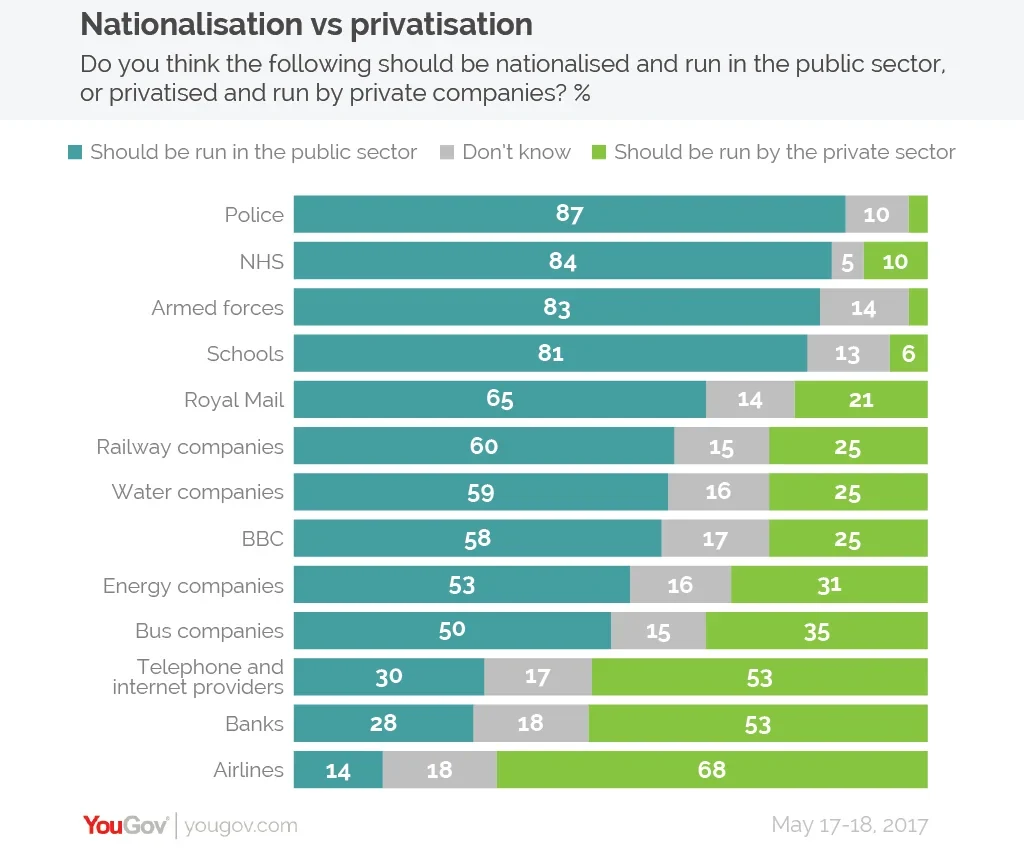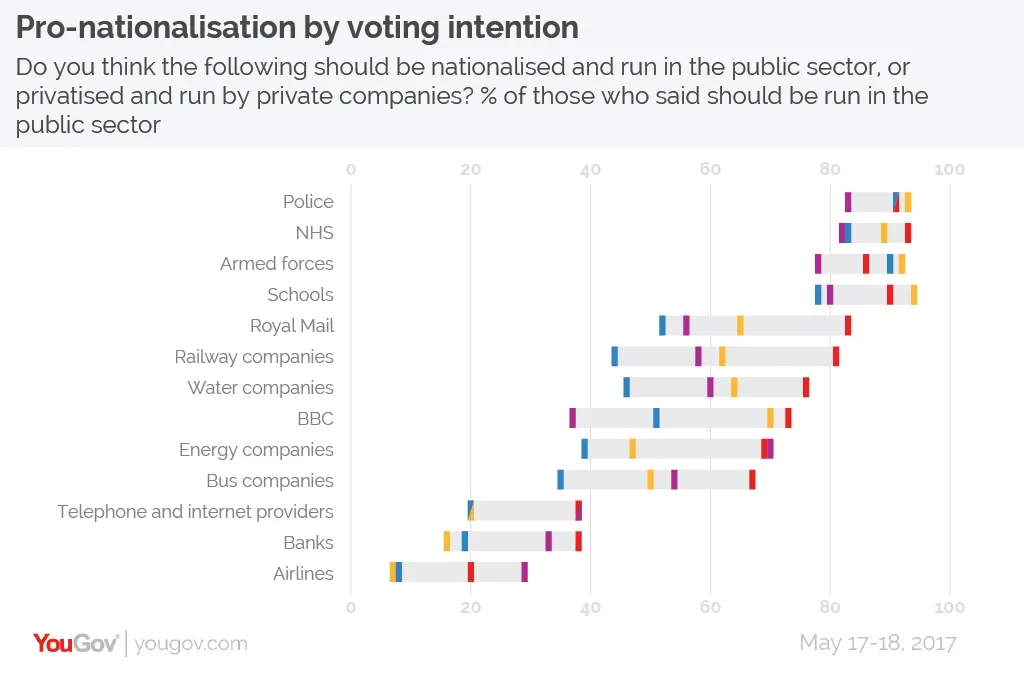Following Labour’s manifesto pledge to nationalise (or renationalise) several industries, YouGov looks at who the public thinks should run 13 different industries and companies
With Labour’s manifesto pledging to nationalise or renationalise several industries, the nationalisation vs privatisation debate is back on the agenda once again. A new YouGov survey asks about nationalisation vs privatisation on 13 different industries and companies: our most extensive list to date.
Previous YouGov surveys have always highlighted that state ownership of companies and industries tend to be popular with the public. And although YouGov has pointed out previously why popular manifesto pledges are not a sign of a party’s impending power, Labour will hope that these policies will help to improve its standing as election day approaches.
The results of our latest research show that there are four services that the public is especially keen to have in public hands: the police (87%), the NHS (84%), the armed forces (83%) and schools (81%).
While support for nationalisation drops off beyond these services, state ownership is still the preferred option for a majority of people across most of the industries we asked about. In fact, there were only three sectors on the list that the majority of British people wanted to remain in private hands: telephone and internet providers (53% want them run by the private sector), banks (also 53%) and airlines (68%).

Labour (re)nationalisations
The Labour manifesto has pledged to nationalise (or re-nationalise) the Royal Mail, railway companies, bus companies, water companies and (partially) energy companies.
Of these, the Royal Mail is the most popular candidate for re-nationalisation. Approaching two thirds (65%) want to see the service run by the state – the organisation only recently entered private hands (between 2013 and 2015) after 499 years of public ownership.
Close behind are railway companies at 60%, (British Rail having been privatised by John Major’s government between 1994-97), and water companies on 59% (privatised by Margaret Thatcher in 1989).
Just over half of Britons (53%) want to nationalise the energy companies, which are a focal point in this election with the Conservatives and Labour both pledging to cap price increases. Exactly half want to see bus companies re-nationalised, having been privatised piecemeal from 1986 onwards.
Old stereotypes on nationalisation still hold true
Whether someone supports nationalisation or privatisation has been a stereotypical indicator of party allegiance for decades now, with Labour being seen as supporters of nationalisation and Tories being seen as supporters of privatisation. The results show that this still holds true.
With the exception of the police and the armed forces (where voters are quite bunched up) people who intend to vote Labour are notably more likely to think an industry should be run by the state than those who intend to vote Conservative. The biggest divide between the two sets of voters is over the iconic nationalisation issue of the ownership of railway companies. While eight in ten (81%) Labour supporters are pro-nationalisation, among Conservative backers this falls to just 44%.
Those who intend to vote for the smaller parties – UKIP and Liberal Democrats – broadly speaking tend to come in between those for the two larger parties. One notable exception is that potential UKIP voters are much more keen on privatising the BBC, with 48% backing such a move.

Photo: PA







